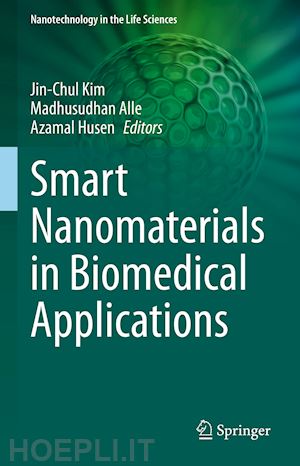Professor Jin-Chul Kim is currently working as a Professor at Department of Biomedical Science & Institute of Bioscience and Biotechnology, Kangwon National University, South Korea, since 2003. Earlier he worked as a senior researcher at LG Household & healthcare, Republic of Korea (1999 – 2003). He completed his Post-doctoral research at Department of Industrial and Physical Pharmacy (IPPH), Purdue University, USA (1997 – 1998). He received his Master’s and Doctorate degree from Department of Chemical Engineering, Korea Advanced Institute of Science and Technology (KAIST), Republic of Korea (1991 – 1997) and his Bachelor’s degree from Department of Chemical Engineering, Yonsei University, Republic of Korea (1987-1991). He has more than 25 years of experience in teaching and research in both academia and industry. He has published more than 300 scientific papers in SCI/SCIE-grade journals as a lead author/corresponding author. He has many awards to his credit, to name a few, Outstanding Teacher Award (Kangwon National University, 2014), Teaching Award (Kangwon National University, 2008), Outstanding Researcher Award (LG household & healthcare, 2001), Patent Award (LG household & healthcare, 2001), Patent Award (LG Chem., 2000), and Award in championship Transport Phenomenon Competition for University Student (Korean Chemical Engineering Society, 1990). He was the leader of a team, named “Education and research team for cultivation of graduate students talented with development of drug carriers for biopharmaceuticals delivery”, under BK21 PLUS (2016-2020). He is leading a research part “Development of biomedical materials based on nanocellulose” of the Priority Research Centers Program of the National Research Foundation of Korea (NRF) funded by the Ministry of Education (2018-2027). He is the leader of a team, named “Education and research team for cultivation of graduate students globally and convergently talented with development of drug carriers for biopharmaceuticals delivery”, under BK21 FOUR (2020-2027). His current research interests include drug delivery systems, colloid & interfaces science, and polymer science.
Dr. Madhusudhan Alle is currently working as a Research Professor at Department of Biomedical Science & Institute of Bioscience and Biotechnology, Kangwon National University, South Korea (since 2018). Earlier he has worked as an Associate Professor at Department of Chemistry, Gondar University, Gondar, Ethiopia (2014-2018). During this period he also served as a Coordinator of MSc (Chemistry) Programs and as the Head of the Chemistry Department. Four students submitted their master’s thesis under his supervision. He received his doctorate from Department of Chemistry, Osmania University, India (2013), where he worked on the research projects sponsored by University Grants Commission, India. He has more than 18 years of experience in teaching and research in both academia and industry. He has published more than 50 scientific papers in SCI/SCIE-grade journals as a first and corresponding author and also published 4 book chapters (Springer and Elsevier). He is also listed as a potential reviewer for many reputed international journals. He is also a member of Ethiopian chemical society and Indian chemical society. He has presented his work in several national and international conferences in India, Ethiopia, and South Korea. He has conducted two research projects sponsored by University Grants Commission (UGC), New Delhi, India. His current research interests include biosciences, polymeric nano-drug delivery systems, cancer biology, biomaterials for sustainability and catalysis. Extraction and chemical modification of nanocellulose from lignocellulosic biomass, green synthesis of metal and metal oxide nanoparticles on nanocellulose support and their novel applications in biomedicine, biosensors and catalysis.
Professor Azamal Husen (BSc from Shri Murli Manohar Town Post Graduate College, Ballia, UP, MSc from Hamdard University, New Delhi, and PhD from Forest Research Institute, Dehra Dun, India) is a Foreign Delegate at Wolaita Sodo University, Wolaita, Ethiopia. He has served the University of Gondar, Ethiopia, as a Full Professor of Biology, and also worked as the Coordinator of the MSc Program and as the Head, Department of Biology. He was a Visiting Faculty of the Forest Research Institute, and the Doon College of Agriculture and Forest at Dehra Dun, India. He has more than 20 years’ experience of teaching, research, and administration. Dr Husen specializes in biogenic nanomaterial fabrication and their application, plant responses to nanomaterials, plant production and adaptation to harsh environments at the physiological, biochemical, and molecular levels, herbal medicine, and clonal propagation and improvement of tree species. He has conducted several research projects sponsored by various funding agencies, including the World Bank











